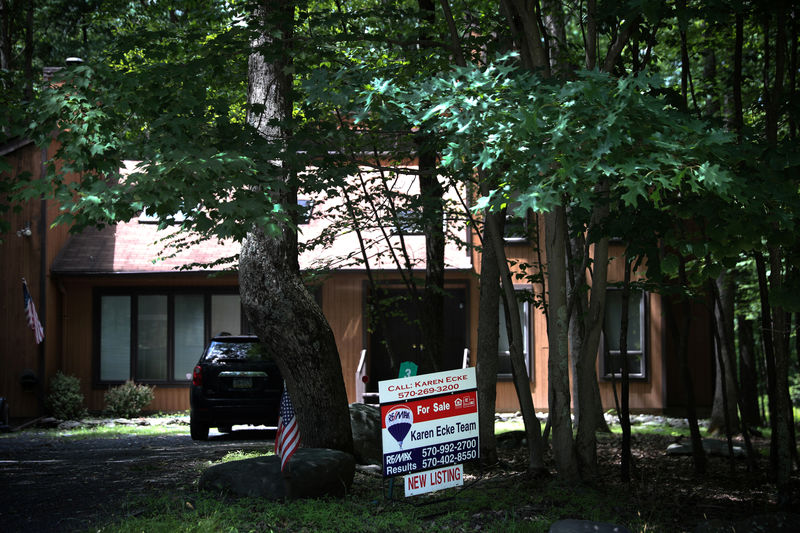NEW YORK (Reuters) - U.S. mortgage applications decreased last week, led by a drop in loan requests to buy a home, as some home borrowing costs climbed to their highest level in a month, the Mortgage Bankers Association said on Wednesday.
The Washington-based group's seasonally adjusted index on loan requests, both to buy a home and refinance one, fell 1.1% to 500.2 from 505.8 in the week ended July 12.
The group's barometer on loan applications for home purchases, which is seen as a proxy on future housing activity, decreased 3.8% to 265.1.
The Commerce Department said on Wednesday that housing starts decreased 0.9% to a seasonally adjusted annual rate of 1.253 million units last month as a rebound in the construction of single-family housing units was offset by a plunge in multi-family homebuilding.
Most fixed-mortgage rates MBA tracks were increased by as much as 8 basis points from the week before.
For example, interest rates on 30-year fixed-rate "conforming" mortgages, or loans whose balances are $484,350 or less, averaged 4.12% last week, higher than last week's 4.04% but still below this year's average of 4.45%.
Mortgage rates rose in step with a spike in U.S. bond yields last week in the wake of stronger-than-forecast inflation data and a dismal 30-year government bond auction.
The jump in mortgage rates did not hurt interest to refinance an existing home, particularly among those who seek loans guaranteed by the Federal Housing Administration (FHA) which helps first-time homebuyers and borrowers with patchy credit.
MBA's seasonally adjusted gauge on refinancing rose 1.5% to 1,827.3 from prior week's 1,779.7.
The refinance share of mortgage activity increased to 50.0% of total applications from 48.7% the previous week. FHA’s share of total applications expanded to 10.6% from 10.1% the week before.

"Refinance applications increased, with activity reaching its highest level in a month, driven mainly by FHA applications. Historically, government refinance activity lags slightly in response to rate changes," Joel Kan, MBA's associate vice president of economic and industry forecasting, said in a statement.